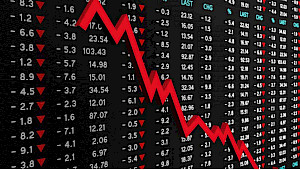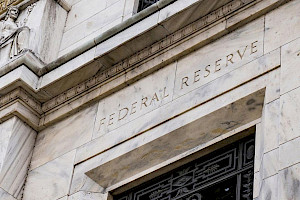The financial media has become a Wild West of misinformation — why aren’t there laws to rein it in?
April 12, 2022Originally published in The Toronto Star on April 5, 2022 as contributing columnist
Fake news! Everyone is complaining about it. No matter if you are politically left or right leaning, we’ve all expressed our dissatisfaction with news stories relating to topics centred around politics, climate change or the pandemic. We tend to complain loudly when we see “fake news” on those topics. But how often do you hear complaints about unreliable information in the financial media? I certainly haven’t run across much over the years.
When I joined the investment business many years ago, there were few outlets where one could get information on investing. The Wall Street Journal, Barons and The Financial Times are the only ones I recall, and for the most part we trusted the content to be sober and unbiased.
Today, there are literally endless platforms, news outlets, and internet-based sites spewing investment information and advice. It seems anyone can be a financial journalist. The result is an unprecedented level of confusion in an environment that invites all types of entertainers and charlatans; the uninformed and the self-serving to regale us with their “investment advice.”
So, who to believe? With speculation rampant, that is the crucially important question.
The financial media landscape has changed dramatically over the last two decades, and the 24-hour news cycle has become a beast that needs continuous feeding. It’s also fiercely competitive, and every outlet must find ways to attract an audience.
More and more, the lure seems to be entertainment. A friend of mine who is a successful financial media host explained that if the choice for an interview is either someone who is brilliant on a particular subject or someone else who has much less knowledge but is charismatic or otherwise entertaining, the choice would be the latter. Why? The need to drive traffic to their platforms. Does anyone remember Louis Rukeyser? Measured, informed and boring. In today’s world, informed and boring doesn’t sell.
Jim Cramer from CNBC’s “Mad Money” is the poster child for financial entertainment. Cramer’s shtick includes literally screaming his “screaming buys” when talking up whatever investment happens to be his flavour of the month. He clearly blurs the line between advice and entertainment and what is uncertain is what lens his audience views him through.
But we can ascertain how often his calls are accurate. A recent analysis shared on Reddit found, over a four-month period, if you had bought his recommendations and pulled out the next day, your returns would be a staggering 500 per cent. But if you held those positions for one month, you would be negative 200 per cent. It certainly looks like his picks become self-fulling prophesies. In other words, the hype is causing the share prices to move up sharply, but then they quickly flame-out and become losses. Furthermore, after just one week, less than half of his calls are profitable. Which is about the same odds as calling the flip of a coin. One could literally place a chimpanzee in front of a computer and get the same results.
I have been following Cramer since the late 1990s and have witnessed some of his most spectacular blunders, including endorsement of Bear Stearns just days before it went bankrupt. More recently, in July of 2021, he confidently predicted oil prices had peaked at $75 (wrong) and last week he declared an end to the recent bear market (I am less certain.) Still, he is more popular than ever.
I hate to pick on CNBC, but it does tend to grant loads of airtime to celebrity guests, even after their investment theories blow up. Case in point, I was watching the network recently and they had Ark Invest CEO Cathie Wood on, who has embodied the spectacular run up in tech and innovation growth stocks over the past couple of years. Although her fund is down 54 per cent from its peak (some of her holdings are down more than 70 per cent), she continues to promote her “deep value” fund and encourages her audience to forgo more traditional sectors.
That’s her prerogative, but I watched in disbelief as CNBC gave her 25 minutes of airtime to “talk her book.” As I have written before, there is a Cathie Wood in every market bubble. I doubt many readers recall Mary Meeker from the dot-com bubble, but she also got a lot of airtime.
The mainstream media, for all its faults, has nothing on the misinformation and outright fraud that you can easily find on the internet. There are endless YouTube shows, investment newsletters and podcasts littering the digital Wild West. This is especially true in the crypto world where some of the investment advice being doled out makes CNBC look like PBS. The fact that this sector is completely unregulated is an open invitation to every bandit or clown to make outrageous predictions for the price of cryptocurrencies and NFTs. The viewer is on his own in deciding what is real and what is bunk.
Although there are plenty of seasoned commentators opining on this stuff, there is an equal number of folks who will urge you to sell or mortgage everything you own to fill your boots with assets like bitcoin. There is little doubt some of these “experts” are crossing the line from misinformation to disinformation. And the people interviewing them are hardly hardcore journalists, usually lobbing softball questions or cheerfully and blatantly leading the witness. The result is that thousands of novice investors take the advice at face value and get fleeced like lambs.
You may wonder how this behaviour is allowed to continue year after year without any public outrage. There are laws, but they are loose enough to allow the mainstream media’s financial entertainers of the world to operate within them.
There are two distinct possibilities as to why the laws aren’t stricter. Firstly, Wall Street and the media are all about money and they will always enable each other to exist and prosper. Additionally, the media controls the messaging. Have you ever wondered how Wall Street got bailed out after the 2008 crisis at the expense of the taxpayer and no one went to jail? Did anyone see the financial media putting up a stink?
Secondly, greed trumps almost every other emotion except, perhaps, fear. As long as the current decade-long speculative bubble lasts, you can bet that there will be very few investor complaints making headlines.
What can be done about this madness? Likely, nothing until the next financial disaster. And even then, rules will be changed to appease the public. But as in the past, those rules will be quickly eroded and chipped away at by the powerful Wall Street lobby machine. In the end, you can adhere to either the principle “caveat emptor” (buyer beware) or “emptor admittantur” (buyer be entertained). It’s your choice.










